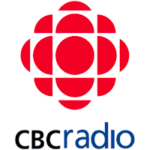 In today’s ever-changing job market, career shifts are becoming more prevalent than ever before. Whether it’s due to personal circumstances or the need to pivot due to a changing economy, employees are frequently making transitions between industries or career paths. However, it’s not just enough to want to make a change—creating a compelling resume is key to successfully transitioning into a new career.
In today’s ever-changing job market, career shifts are becoming more prevalent than ever before. Whether it’s due to personal circumstances or the need to pivot due to a changing economy, employees are frequently making transitions between industries or career paths. However, it’s not just enough to want to make a change—creating a compelling resume is key to successfully transitioning into a new career.
With this post, we’ll help make your career pivot as smooth as possible by providing some resume tips tailored for career changers.
Tips for Writing a Compelling Resume and Cover Letter for a Successful Career Transition/Change
Not sure how to write a compelling resume and cover letter? These 10 simple tips will set you on the right path.
Identify and Showcase Transferable Skills
When it comes to resume writing for a career change, it’s important to emphasize any transferable skills that may be applicable to your new role. This also applies to cover letters. Make sure to highlight any experiences or accomplishments that demonstrate these skills and explain how they can be used in the new position.
Craft a Compelling Career Objective
This should be the first thing that employers see when they look at your resume, so make sure it stands out and clearly communicates why you are making a career change and what you hope to achieve in your new role. Be sure to include specific skills, experiences, and accomplishments that make you qualified for the position.
Highlight Relevant Achievements
Instead of simply listing out your job duties, focus on highlighting any achievements or successes that may be relevant to the new job. This will help show employers that you have been successful in past positions, and how this success may translate into your next role.
Leverage a Functional Resume Format
If you have gaps in employment or changes in career direction, consider using a functional format for your resume instead of a chronological one. This type of format focuses on skills rather than dates and can help downplay any work history inconsistencies.
Address Career Gaps and Changes
If there have been major changes or gaps in your career path, make sure to address them head-on in both your resume and cover letter. Explain why you made the switch and what you gained from it. If you had a gap, try to highlight how you developed or grew during this time, even if volunteering or contributing to your community. This will show employers that you are open-minded and willing to learn new things!
Showcase Industry-Specific Knowledge
Demonstrate your knowledge of current trends, technologies, and best practices in the industry by including information about conferences attended, publications read, or courses taken related to the position you are applying for.
Leverage Keywords and Industry Language
When crafting a career change resume, it’s important to use keywords and industry language that will help employers recognize your expertise quickly and easily. Make sure to research common keywords used in job postings related to the position you are applying for so that you can incorporate them into your resume where appropriate.
Showcase Your Adaptability and Continuous Learning
Employers want to hire candidates who have demonstrated their ability to adapt quickly and continue learning throughout their careers. To show employers that you possess these qualities, highlight any additional training or certifications obtained since leaving your last role as well as any work, volunteer or side projects completed during this timeframe.
Customize the Resume for Each Job Application
This means tailoring the information you include to fit the specific requirements of the job you are applying for. For example, if you are applying for a position in marketing but have experience in customer service, focus on the skills and knowledge that transfer between the two fields.
Proofread and Edit for Perfection
Once your resume is customized for each job application, it is essential to proofread and edit it thoroughly before submitting it. Even small mistakes like typos or incorrect grammar can be enough to turn off potential employers, so make sure to double-check everything before sending it out. Additionally, ask someone else to review your resume as well; another set of eyes may catch something that you missed.
Get Professional Help to Write a Compelling Resume or Cover Letter
Making the switch to a new career can be daunting, but with the right strategies and support, you can make it happen. Working with a career counsellor for resume writing services and career transition support is one of the best investments you can make in your personal development. A qualified professional can provide you with the help you need to make a career change, including quickly writing compelling resumes and cover letters that stand out and present your skills in the best light to employers.
So, why wait? Get started with your job change today with Canada Career Counselling. With our expert job search help, you’ll be well prepared and on track to achieving your ideal next role. Contact us today for more information!






